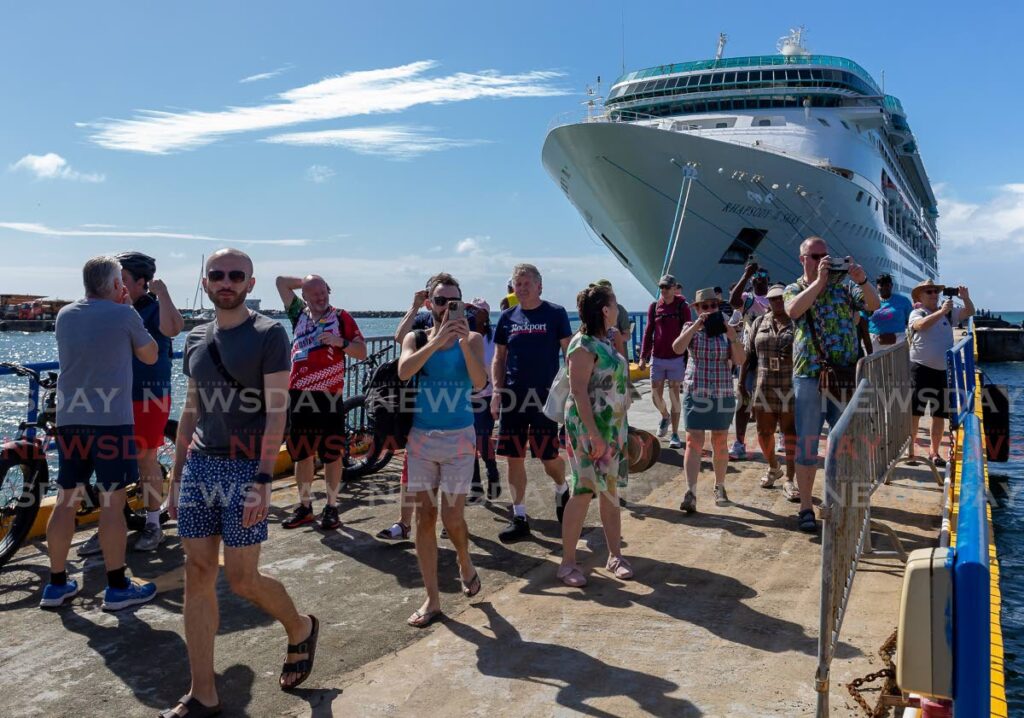Cruising into tourism’s future

THE CRUISE-SHIP season is in full swing, bringing with it a welcome boost to tourism arrivals.
It’s the first time in almost three years that these ships – sailing from countries like Italy and the US – have been able to stop along our shores, thanks to the abatement of the global covid19 situation.
But while these vessels bring with them impressive numbers (often they can hold as many as 5,000 passengers; and future stops in TT are already confirmed into 2024) we should not be fooled into thinking their mere presence is a miracle cure for our tourism woes.
Agencies in both Trinidad and Tobago need to do more to court these cruise lines and to encourage them to make our country a fixed part of their itineraries. Cruise-ship visitors don’t just provide a source of income. If they have a good experience, they spread word about the attractiveness of TT as a destination, something that is key to reversing our tourism fortunes.
With air travel becoming relatively more prohibitive owing to energy-price fluctuations, aviation-industry uncertainties and the darkening outlook when it comes to carbon emissions, sea travel may well come to play an even greater role in global travel. The commitment of many cruise lines to using vessels that have been adapted to cause less pollution or to cleaner fuels will only make them more viable in the long run.
But while the ships have returned and may well be here to stay, it is important to ask: what are these passengers visiting when they stop in on our islands for a few hours or half a day? What is their first impression at the port? How much revenue are they really supplying? And are we doing enough to make a big impact? Or are we complacently taking for granted our attractiveness as a destination, to our detriment?
Welcoming cruise ships and their passengers is about more than photo opportunities and sprinkling a few moko jumbies here and there at ports. As Tobago officials recently experienced, there needs to be improvement in basic logistical systems, such as the provision of ground transport. If a tourist only has a few hours to get around an island, such matters are instrumental in shaping the overall experience, and it is bad when taxis simply run out.
There should also be a clearer understanding of the TT brand. This is even more important when we are dealing with ships that literally make several ports of call before dipping into our shores. An effort should be made to preserve and maintain unique heritage sites that are in close proximity to ports. There should also be greater focus on hospitality-industry standards.
It is a crowning irony that ships have returned at precisely the moment when this country is recording historic levels of crime. It goes without saying that the management of our national security is also a key element if we wish these passengers and ships to return regularly.

Comments
"Cruising into tourism’s future"